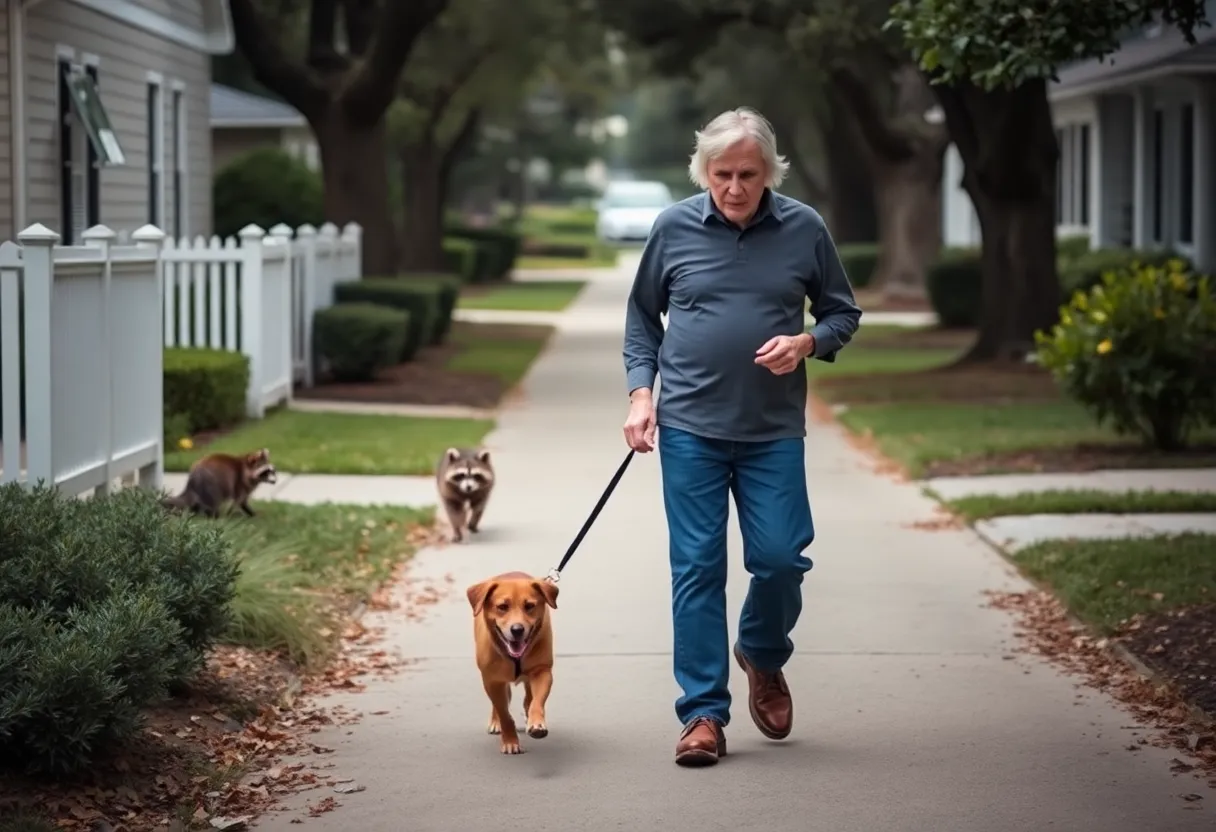News Summary
A raccoon in Savannah tested positive for rabies after attacking a resident on March 19, raising concerns about public safety. The incident, which involved a local resident being bitten and scratched, has prompted local authorities to remind residents to avoid contact with wild animals and ensure their pets are vaccinated. Rabies poses a significant risk, and immediate medical attention is crucial if bitten.
Alert in Savannah: Raccoon Tests Positive for Rabies After Biting Resident
In a concerning incident that took place on March 19, residents in Savannah were shaken to hear that a raccoon tested positive for rabies after attacking a local resident. The incident unfolded near Montgomery Cross Rd. and the Harry Truman Parkway, where Chatham County Animal Services received reports about an aggressive raccoon behaving strangely.
What Happened?
According to reports, an adult resident was enjoying a walk nearby when the unexpected attack happened. The unfortunate individual experienced scratches and bites from the rabid raccoon. Following the incident, Chatham County Animal Services promptly submitted the raccoon for testing at the Chatham County Health Department. The results came back confirming what everyone feared: the raccoon had rabies.
What is Rabies?
For those who may not know, rabies is a deadly virus primarily spread through the bites of infected animals. Once symptoms appear, it is almost always fatal. It’s essential to recognize that Coastal Georgia is home to various wild creatures, including raccoons, foxes, and bats, which can carry this dangerous disease.
Safety Precautions for Residents
Following this alarming incident, local authorities are urging residents to be cautious. It’s important not to handle or feed wild animals, and certainly not to attempt to domesticate feral cats. Pet owners in the area are reminded to keep their pets up to date with regular rabies vaccinations. This practice goes a long way in protecting not only your pets but also your family.
Recognizing the Signs
The Chatham County Health Department’s Environmental Health office has provided some insights into what symptoms to look for in animals that may indicate rabies. These symptoms can include:
- Unusual changes in behavior, such as aggression
- Foaming at the mouth
- Paralysis or difficulty moving
If you encounter an animal displaying these signs, it’s best to maintain a safe distance and avoid interaction.
What to Do If You Are Bitten
If you happen to be bitten by an animal, it is crucial to seek medical care immediately. Timely treatment can be lifesaving. Furthermore, you should report the incident to Chatham County Animal Services by calling 912-652-6575, and notify the Chatham County Environmental Health office at 912-356-2160. They can guide you through what steps to take next.
Other Rabies Incidents in Savannah
This isn’t the first incident involving rabies in Savannah this year. Just earlier, on February 11, a feral cat was found to be rabid after scratching a resident. Eyewitness accounts described the cat as appearing “drunk” before it was put down and sent for testing. Rabies clearly remains a matter of public concern in Chatham County, especially given the presence of so many high-risk animals in the area.
Stay Informed and Safe
As a reminder, the presence of rabid animals underscores the importance of keeping both pets and people safe from potential rabies exposure. Staying informed and practicing caution when encountering wildlife can help protect everyone in the community.
In summary, be vigilant in your interactions with wildlife, ensure your pets are vaccinated, and don’t hesitate to seek medical attention if you find yourself in an unfortunate situation. It’s always better to be safe than sorry!
Deeper Dive: News & Info About This Topic
HERE Resources
Additional Resources
- WSAV: Raccoon Tests Positive for Rabies
- MSN: Health Officials Urge Caution in Savannah
- WTOC: Feral Cat Tests Positive for Rabies
- The Georgia Sun: Rabid Cat Scratches Resident
- WSAV: Family Faces Rabies Shot Bills After Bat Encounter
- Wikipedia: Rabies
- Google Search: Rabies
- Google Scholar: Rabies
- Encyclopedia Britannica: Rabies
- Google News: Rabies







